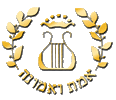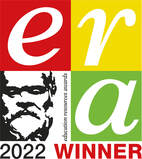GEOGRAPHY
Mission Statement
We seek to offer a broadly balanced curriculum, in terms of human and physical geography, and have sought to update schemes of work and topics so that we are increasingly 'place based' as opposed to 'topic based'. This means, for example, that studying a country such as Brazil in year 7 allows us to look at both human and physical geography 'topics' and the links between them.
We also seek to encourage more nuanced consideration from pupils in different contexts, enabling them to explain processes and concepts in greater detail and complexity. We also look to incorporate opportunities for links to current events and wider geographical issues with topics such as 'Brazil', energy and the environment and tectonic hazards. Teachers are encouraged to reference events and link to lessons wherever and whenever possible. This helps stimulate interest in the subject and topics being covered as well as 'bringing the subject to life'. We want to apply the school aim of ‘Excellence in Education’ in a Geographical context. This is summed up below:
Curriculum: KS3Year 7:
Winter Term: ‘World View Upgrader – How we see the world’ & ‘Making Mapping Connections’
Year 8:
Winter Term: ‘Iceland - Land of Fire & Ice’
Spring Term: ‘Climate Change’
Summer Term: ‘Japan – On Shaky Ground’
Year 9:
In Year 9 there is a focus on Asia. China and India are the two most populous countries in the world, with their combined populations being over 1/3 of the global total. Both countries are rapidly developing and this is the focus of pupils’ studies for the first 2 terms in Year 9. Pupils build on ideas first touched upon when studying the growth of Manchester in Year 7 and are introduced to concepts that are further developed when studying GCSE Geography. As a result, in part, of the development of these Asian superpowers, there are increasing concerns over global resource management and energy usage. In the final term of the year, pupils look at the global patterns, issues and sustainable solutions for these issues, building on ideas first touched upon when studying climate change in Year 8. Winter Term: ‘Rising China’
KS4: GCSE Geography (Edexcel A)
The Geography department offers the following two-year GCSE course, leading to a very relevant and interesting qualification. Our syllabus is a thematic one, where we build on topics studied in Years 7-9 such as plate tectonics and globalisation including such issues as climate change, world population growth and international development. For the more scientifically minded students, our first year is also for you with a number of studies, based on parts of the physical and biological environment. These are based in and around the U.K. and you will pick up skills in Geographical Information Systems (G.I.S.), and graphical and cartographic skills, which are the essence of the subject. The examinations for this subject are in Physical and Human Geography as well as Geographical Investigations. Two fascinating years of study lead to a valued qualification that is astride the science-humanities boundary, giving a well balanced GCSE course for both sets of students. Summary of Subject Content: Physical Geography: (37.5% of the total marks)
Human Geography: (37.5% of the total marks)
Geographical Investigations: (25% of the total marks)
A LEVEL GEOGRAPHY (Edexcel)
A Level Geography provides students with an opportunity to study a diverse range of topics. Students will be able to understand how both human and physical factors affect the world around them and how interactions between these shape our everyday lives. A Level Geography offers a natural progression for students who have studied and enjoyed GCSE Geography and will build on some of this prior knowledge as well as introducing some exciting new areas of study. The A Level Geography course also requires students to undertake an independent investigation. This requires them to take part in a 4 day residential field course toward the end of Year 12. In addition, A Level Geography is considered a ‘facilitating subject’ by Russell Group Universities. Area of Study 1. Dynamic Landscapes Topic 1: Tectonic Processes and Hazards Tectonic processes, a study of the causes of tectonic hazards, the impact of tectonic activity on people, and responses to tectonic hazards. Topic 2: Landscape Systems, Processes and Change An integrated study of processes, landforms and landscapes. A study of one landscape system and the physical and human processes influencing change over time and space. • Option 2.2: Coastal landscapes and change Area of Study 2. Dynamic Places Topic 3: Globalisation A study of globalisation, its causes and consequences for different people and places. Topic 4: Shaping Places A study of how and why places are shaped and changed, the meanings and identities attached to different places and the consequences for different people. • Option 4.2: Diverse Places Area of Study 3. Physical Systems and Sustainability Topic 5: The Water Cycle and Water Insecurity Water cycle, human and natural factors that impact on water cycling, consequences for water security and future water conflicts. Topic 6: The Carbon Cycle and Energy Security Carbon cycle, human and natural factors impacting on carbon cycling, the consequences for ecosystems and management strategies. Topic 7: Climate Change Futures Exploring the links between the carbon and water cycles through climate change. Area of Study 4. Human Systems and Geopolitics Topic 8: Superpowers Superpowers, the reasons for shifting economic and political power, the impacts of superpowers, influence of superpowers in governing the global commons. Topic 9: Global Development and Connections Choose one : • Option 8: Health, Human Rights and Intervention • Option 9: Migration, Identity and Sovereignty
|





